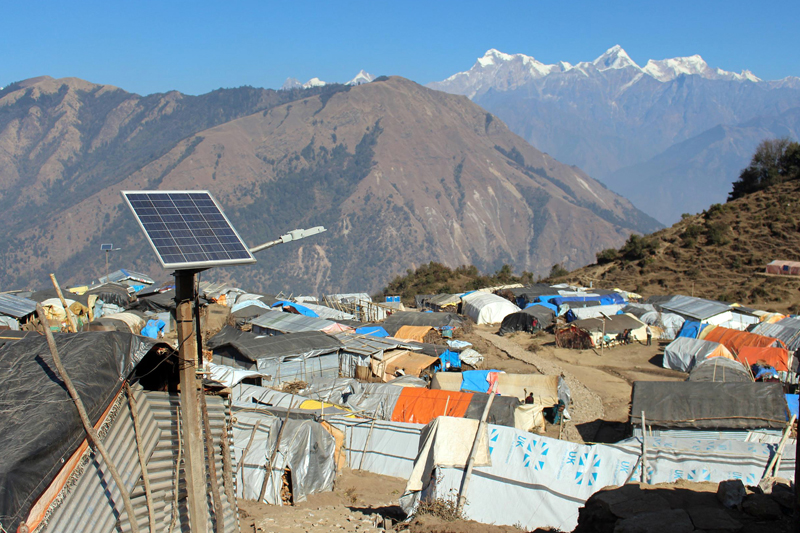Scale up emergency preparedness: WHO
Kathmandu, April 25
Health sector partners have called for scaling up emergency responses after reviewing lessons learnt from last year’s earthquake.
A press statement issued here today by World Health Organisation said that as Nepal marks one year of the earthquake, the health sector partners reviewed lessons learnt from the event and recommended strengthening and expanding emergency preparedness and response capacities beyond the national capital, and testing them periodically, to prepare better for future emergencies.
“We must learn from the Nepal earthquake, just as we did from the Indian Ocean tsunami.
Applying lessons learnt from such events can help strengthen our efforts for preventing emergencies from becoming disasters,” said Dr Poonam Khetrapal Singh, regional director for WHO Southeast Asia in the statement.
Dr Singh was addressing a two–day ‘Lessons Learnt Conference: Health Sector Response to Nepal Earthquake 2015, organised by the Ministry of Health and WHO, here on 20-21 April, it said, adding, priority lessons identified in the meeting would be consolidated into a road map for further action.
The statement said that the health sector’s response to the Nepal earthquake was rapid, well-coordinated among health partners, and tailored to the needs of the affected population.
“While acknowledging what was done right, we must also identify areas where we could have done better and explain the reasons behind these,” she said.
As over 80 per cent of health facilities in the affected districts were either damaged or destroyed in the earthquake last year, the injured had to be rushed to hospitals in Kathmandu, which remained functional as they had been retrofitted, their staff were trained in mass casualty management and they had emergency plans in place that were immediately activated.
“The preparations that were done in Kathmandu hospitals helped saved many lives. Similar preparations need to be put in place at all other levels too, so that in the event of an emergency, everyone throughout the health system is prepared and knows what to do.
As health facilities are being reconstructed, there is an opportunity to build better, and put more risk reduction measures in place” Dr Singh said.
The statement said that stronger policies will be needed to ensure that disaster risk reduction measures are implemented and emergency preparedness and response capacities are built at all levels, with all cadres of health staff trained.
“Robust emergency response plans should be in place at all levels and should be tested periodically for their effectiveness,” reads the statement adding, “These plans should be all encompassing to minimise the health impact of any emergency.”
“Strengthening emergency preparedness and response capacity should be an ongoing process in Nepal and in all other countries.
With WHO Southeast Asia Region prone to natural calamities, the lessons learnt from the Nepal earthquake are important for the entire region to prepare better to respond to emergencies,” she added.
WHO stands committed to continue to work with Nepal government for rebuilding a resilient health sector to save lives in any emergency.






